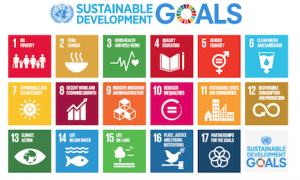Despite its importance to achieving SDGs, funding for statistics dwindles – Report

The importance of the role of statistics in achieving the Sustainable Development Goals, (SDGs) is widely acknowledged among development organisations and funding institutions but financial support for statistics has dwindled even as discussions on the subject show a highlighting of its relevance and importance.
A new report published by the Partnership in Statistics for Development in the 21st Century (PARIS21) finds that while there is increased focus on statistics for development, that focus is not reflected in aid figures. “As of 2013, support to statistics remains low, making for a mere 0.24 per cent of Official Development Assistance (ODA),” it says.
The report, Partner Report on Support for Statistics (PRESS 2015) published in September, reiterates the fact that without timely and accurate statistics, countries will not be able to underpin effective and sustained policies, programmes and services to help lift the poor out of poverty – and keep them there.
According to the report, harnessing the data revolution, which is an explosion in the volume of data matched by a widespread and growing demand for data, will be essential in making the SDGs a success, to measure what counts most.
“But the data revolution is about more than supply and demand. If it is to be meaningful, it must enable countries and citizens to monitor development progress, hold leaders accountable and promote sustainable development,” it says.
According to the report, 2013 commitments to statistical development of about $448 million show a 20 per cent decrease from the previous two years. The decrease in commitments in 2013 led to a drop in the share of ODA dedicated to statistics from 0.33 per cent in 2011 and 2012 to 0.24 per cent in 2013.
PRESS found that support to statistics reached $448 million in 2013.
“This is $120 million less than in 2011 and 2012, respectively,” it says.
The share of Official Development Assistance dedicated to statistics fell from about 0.33 per cent in 2011 and 2012 to 0.24 per cent in 2013 while the total amount ODA reached in 2013 is the highest level ever recorded.
It noted that general and methodological issues receive the most support ($329 million), followed by demographic and social statistics ($210 million) and economic statistics ($107 million).
While the report indicates that this drop is mainly driven by the projects reported on in the annual PRESS questionnaires, it says the drop should, however, not be interpreted as a general trend because commitments often span multiple years and fluctuations in annual figures are therefore common.
The report found that distribution of support among regions of the world is also changing. Asia-Pacific received the largest share of total support with 41 per cent – a total of $173.6 million.
“This development is mostly due to the development of the Bangladesh Poverty Database, which makes up 25 per cent of support to Asia,” it explains.
Africa received a third – which is 36 per cent of total statistical support, equivalent to $148.9 million, Eastern Europe 7 per cent ($ 28.1 million) and Latin America and the Caribbean 2 per cent ($7.4 million). A further 14 per cent ($58.5 million) was committed to global projects and programmes that were not country-specific.
“In 2012, more than half (56 per cent) of reported commitments went to Africa. In fact, Africa has historically received the lion’s share of statistical support,” it adds.
The report includes a list of the top five providers of development co-operation in statistics. These are the World Bank; EUROSTAT; United Nations Population Fund; Food and Agricultural Organization of the United Nations and the United Kingdom who together provided 65 per cent of total commitments in 2013, down from 79 per cent in 2006.
By Emmanuel K. Dogbevi
